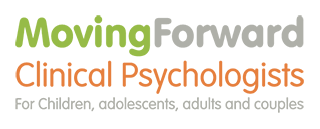We love to work collaboratively with people who are motivated to overcome their challenges and to make meaningful changes in their lives. Some common addiction and substance use problems we may be able to help with include:
- Substance Addictions:
- Alcohol Addiction: Excessive and uncontrolled consumption of alcohol, leading to physical and psychological dependence.
- Drug Addiction: This can include addiction to illegal drugs like cocaine, heroin, or methamphetamine, as well as prescription drugs when used improperly or recreationally.
- Tobacco Addiction: Addiction to nicotine, usually through smoking, chewing tobacco, or vaping.
- Prescription Medication Addiction: Dependence on prescription drugs, such as opioids, sedatives, or stimulants, when used improperly or recreationally.
- Cannabis Addiction: Although not everyone who uses cannabis becomes addicted, some individuals can develop a dependence on it.
- Caffeine Addiction: Overconsumption of caffeine through coffee, tea, energy drinks, or other sources can lead to dependence.
- Food Addiction: A compulsive overeating or binge-eating disorder characterized by an unhealthy relationship with food, often associated with obesity and other health issues.
- Gambling Addiction: An addiction to gambling, which can lead to financial problems and emotional distress.
- Internet and Technology Addiction: Excessive use of the internet, video games, or social media that interferes with daily life and responsibilities.
- Shopping and Spending Addiction: Compulsive buying and excessive spending, often leading to financial difficulties.
- Sex and Pornography Addiction: An unhealthy and compulsive fixation on sexual activities or pornography, often causing relationship and personal problems.
- Work or Career Addiction: Obsessive dedication to work or career-related activities, sometimes at the expense of personal relationships and well-being.
- Exercise Addiction: Excessive and compulsive exercising, often resulting in physical strain or injury.
- Love and Relationship Addiction: Seeking validation and self-worth through romantic relationships and constantly needing to be in a relationship.
- Gaming Addiction: Compulsive and excessive gaming, often to the detriment of other life activities.
Addiction is a really complex and multifaceted condition that can vary in its severity and impact from person to person. Not everyone who engages in these above activities will develop an addiction. However, when substance or behavior use becomes problematic, leads to negative consequences in one’s life, and is difficult to control, it may be a sign of addiction. Seeking help from a healthcare professional or addiction specialist is recommended for those who suspect they are struggling with addiction.
Some of the signs that someone may have a problem with addiction and substance use can include:
- Increased Tolerance: A person needs more of the substance to achieve the desired effect or experiences reduced effects with the same amount. This can lead to escalating use.
- Withdrawal Symptoms: When not using the substance, the individual experiences physical or psychological withdrawal symptoms, such as nausea, anxiety, sweating, or irritability.
- Loss of Control: Repeated unsuccessful attempts to cut down or control substance use. The person may express a desire to quit or reduce use but finds it challenging to do so.
- Preoccupation: A significant amount of time is spent obtaining, using, or recovering from the substance. The individual may obsessively think about using.
- Neglecting Responsibilities: The person’s substance use leads to neglect of important obligations, such as work, school, or family responsibilities.
- Social and Interpersonal Problems: Substance use leads to conflicts with family, friends, or colleagues. The person may become isolated from their social support system.
- Loss of Interest: A decline in participation in activities and hobbies once enjoyed due to substance use taking precedence.
- Risk-Taking Behaviors: Engaging in dangerous activities while under the influence, such as driving under the influence, having unsafe sex, or taking risks to acquire the substance.
- Secrecy and Deception: Hiding or lying about substance use, denying the extent of use, or being secretive about where they go or what they do when using.
- Financial Problems: Experiencing financial difficulties due to the cost of maintaining the addiction. This may include borrowing money or selling personal items to support the habit.
- Physical and Health Changes: Noticeable changes in physical appearance, weight loss or gain, deteriorating health, and chronic health issues associated with substance use.
- Mood Swings: Frequent and extreme mood swings, irritability, and heightened emotional reactions when using or not using the substance.
- Legal Issues: Involvement in legal problems related to substance use, such as arrests, DUIs, or other legal consequences.
- Social Isolation: The person may distance themselves from friends and family members and spend more time with peers who share their substance use.
- Failed Attempts to Quit: Repeated efforts to quit or reduce substance use that result in relapse or unsuccessful cessation.
While the presence of one or a few of these signs does not necessarily indicate addiction, a combination of these signs over time is often indicative of a cause for concern.
Addiction and substance use can have profound and far-reaching effects on a person’s life and relationships. These effects can be physical, psychological, social, and economic.
If you suspect someone has a problem with addiction and substance use, it’s important to approach the situation with care and encourage them to seek professional help. Addiction is a complex condition, and individuals often need support and treatment to overcome it successfully.
At Moving Forward, we take an individualised approach to helping people with their problems. Therapy is tailored to the individual’s unique needs, and some individuals may benefit from a combination of therapeutic approaches, and in some cases, the input of other health professionals and services.
Mental Health Line 1800 011 511 – https://www.health.nsw.gov.au/mentalhealth/Pages/mental-health-line.aspx
Beyond Blue 1300 224 636 – https://www.beyondblue.org.au/
Suicide Call Back Service 1300659 467 – https://www.suicidecallbackservice.org.au/
Alcohol and Drug Information Service 1800 422 599 – https://yourroom.health.nsw.gov.au/getting-help/Pages/adis.aspx
Gambling Helpline 1800 858 858 – https://www.gamblinghelponline.org.au/

